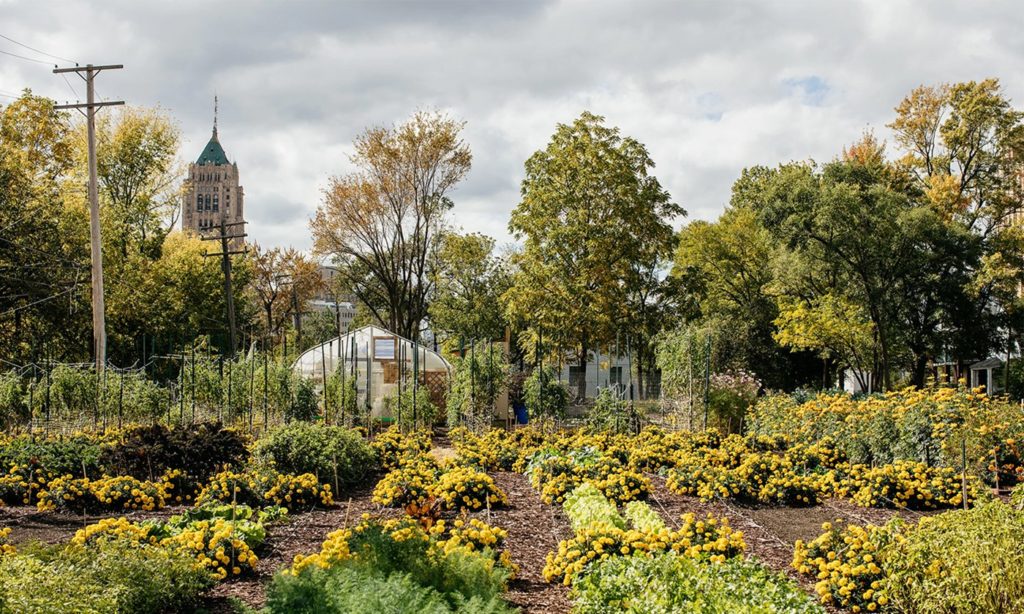Detroit Standing Up For Itself

Detroit Ruin Porn is a oeuvre that is usually pretty gross. People in that proud city have struggled with negative feelings toward their city for decades now. No one is coming to help them since neither political party has anything like an industrial policy that would revitalize specific communities that have seen massive job loss. So this Boston Review piece on how Detroiters are remaking their own city using mutual aid networks is a worthy read. Whether these are scalable or not is a good question, but in a sense it barely matters because the other option for the city is nothing.
It is in this environment that mutual aid projects have flourished. While variations have existed in Detroit since at least the early twentieth century, a cohort of the city’s younger organizers are motivated by their lived experiences to solve the problems created by government and private sector practices. Their efforts parallel national developments as people across the country turned to mutual aid projects in the early months of the COVID-19 pandemic. In the Motor City in particular, unemployment rates shot up to 48 percent in June 2020 before improving only to about 25 percent through July 2021. As businesses closed and government services shrank, community solidarity offered a path through an uncertain time, and maybe a model for the future. While the pandemic didn’t expose anything that many younger activists weren’t already aware of and frustrated with, seeing the growth of mutual aid networks and practices gave some a way into the work for the first time.
To Jewan Price, one of the leaders of Eastside Mutual Aid (EMA) and a student at Henry Ford Community College, it was always clear how much one’s life is affected by not having enough. Growing up in Detroit, Price could see “what can really happen when you don’t have resources available in your community or at your disposal.” Price is the oldest of eight siblings, and his family experienced bouts of homelessness growing up, often having to move from temporary place to place. “There were times we had to miss school for like half a year,” he remembers. EMA, which began its work in 2020, focuses on directly distributing resources to meet basic needs. Every Wednesday evening Price and other volunteers set up in the parking lot of the Rosa Parks Transit Center, offering clothes and homecooked food to mostly unhoused people. There are free books here too, ranging from a Nicholas Sparks romance novel to pamphlets on socialism and “Racism and the Death Penalty.”
Younger Black Detroiters like Price are used to providing for each other. “Black Detroiters are well aware that we will not be saved—whether that’s by suburban white folks, whether that’s by the motor industry, [or] the federal government,” says Myaia Holmes, the Executive Director of Metro Detroit Mutual Aid, a group that works with other aid organizations on capacity building, training, and support. “Every day, we have to make the effort to save each other.” The route to middle-class comfort several of her family members followed—escaping poverty by working for auto manufacturers—seems increasingly out of reach, she tells me: it is now far more the exception than the rule.
Skeptical of traditional bootstrapping narratives, it’s clear to these young Detroiters that something else must be done to make up for the failures of government and charity. “You realize when you start having conversations with your neighbors, that you can get a lot more done when you worry about [each other],” Rogers tells me. Their determination to embrace collectivity and reject individualism is a “direct response to the longstanding ideas of capitalism and American ideas of being very individualistic,” she adds. Building this sense of community is essential to meeting actual needs, rather than the ones traditional systems only imagine. “You don’t need all of these fancy words and collegiate dialect to ask, ‘yo, what do you need in your community?’” says Price. The key is to “figure it out together.”
I am as committed to a big state approach as anyone living. But why on earth should Detroit believe anyone will ever save it?


